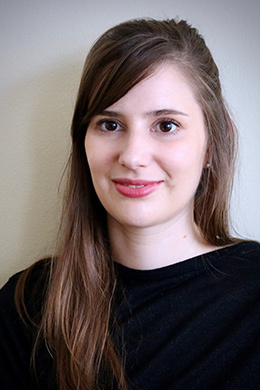Protease Profiling for Rapid Phenotyping and Monitoring of ARDS
 Catharina Conrad, MD, PhD
Catharina Conrad, MD, PhD
Postdoctoral Researcher
University of California, San Francisco
San Francisco, CA
During her ICU training rotation, Catharina Conrad, MD, PhD, first became fascinated with pulmonary complications and respiratory failure and how to prevent these complications. This initial interest spurred her to narrow her lens to focus on one specific condition, ARDS, and a desire to find new molecular methodologies that could help to prevent ARDS development before clinical onset. With onset of the COVID-19 pandemic, the significance of ARDS became more pronounced, however, breakthrough advances had not been achieved in the field. With the help of a 2020 IARS Mentored Research Award, Dr. Conrad, a postdoctoral researcher at University of California, San Francisco, was able to dedicate her research on “Protease Profiling for Rapid Phenotyping and Monitoring of ARDS” to make inroads in this area. This IMRA-funded research project focused on profiling disease-related proteolytic activities in the lung fluids of ARDS patients to predict disease onset and severity. Dr. Conrad and her research collaborators performed a pilot study that showed that fluorescent reporter cleavage was correlated with poor patient survival, and activation was robustly detected within 20-30 minutes in the BAL of all patients with ARDS compared with healthy controls. These findings suggest that detecting ARDS-associated proteases in lung fluids may represent a rapid tool for early recognition and stratification as point-of-care tests in a critical care setting. Dr. Conrad hopes this study will provide the foundation to advance monitoring of pulmonary complications and personalized treatments in the future. In her interview, she shares her research journey, how the IMRA helped her progress as a researcher and her hopes for the future studies of pulmonary complications and personalized treatments to prevent them.
1. What is your current position? How long have you been in this position? What was your role when you were first funded by IARS?
I am currently a postdoctoral researcher, and my position has not changed since I was first funded by the IARS. I have been in this position since August 2020.
2. What drew you to anesthesiology and to your particular area of research? Has your research subject area evolved since the award?
During my ICU rotation, I became interested in patients with pulmonary complications and respiratory failure. Pre-pandemic, ARDS cases were of course less frequent, but I have always been curious in finding new molecular methodologies that could help to predict ARDS development before clinical onset. With the advent of the COVID-19 pandemic, the significance of ARDS became more pronounced, however, breakthrough advances unfortunately have not been achieved in the field.
3. What was the goal of your initial research project? Was it met?
The goal of our research project was to profile disease-related proteolytic activities in the lung fluids of ARDS patients to predict disease onset and severity. We were able to perform a pilot study that showed that fluorescent reporter cleavage was correlated with poor patient survival and activities were robustly detected within 20–30 minutes in the BAL of all patients with ARDS compared with healthy controls. Thus, we suggest that detecting ARDS-associated proteases in lung fluids may represent a rapid tool for early recognition and stratification as point-of-care tests in a critical care setting.
4. How did your findings impact patient care?
Currently they have not, but we hope that in the future our study contributes to developing new rapid test systems to identify patients with high-risk profiles early in the disease course of ARDS, which could allow for sooner therapeutic intervention.
5. How did your research impact the field of anesthesiology?
We hope that our studies provide the foundation to advance monitoring of pulmonary complications and personalized treatments.
6. How did the award affect your research/professional trajectory?
The IARS Mentored Research Award significantly helped me to pursue my scientific goals by providing protected research time.
7. How do you feel about having received the IARS Mentored Research Award?
I feel honored that I have received the IARS Mentored Research Award and I am committed to continue making meaningful contributions to the field. The award was instrumental for developing my research career and I am looking forward to my next steps.
8. What would you like to convey to our donors, the people who made this award possible?
I am extremely grateful to all donors who made the award possible. The support has a profound impact on the careers of junior investigators in Anesthesiology and for a lot of us it helped to receive extramural funding opportunities to pursue scientific independence. As a person who does not come from a privileged background, I am even more grateful for the opportunities and recognition.
9. What is something that someone would be surprised to learn about you?
I love to take road trips and visit most scientific conferences cross-country by car.
10. What do you hope for the future of anesthesia research?
I hope that in the future the use of multiomic approaches, such as genomics, biomarker discovery and proteomics, will expand in Anesthesiology to allow for early detection of perioperative complications and tailored anesthesia strategies.
“I am extremely grateful to all donors who made the award possible. The support has a profound impact on the careers of junior investigators in Anesthesiology and for a lot of us it helped to receive extramural funding opportunities to pursue scientific independence. As a person who does not come from a privileged background, I am even more grateful for the opportunities and recognition.”
– 2020 IARS Mentored Research Award Recipient Catharina Conrad, MD, PhD
International Anesthesia Research Society
